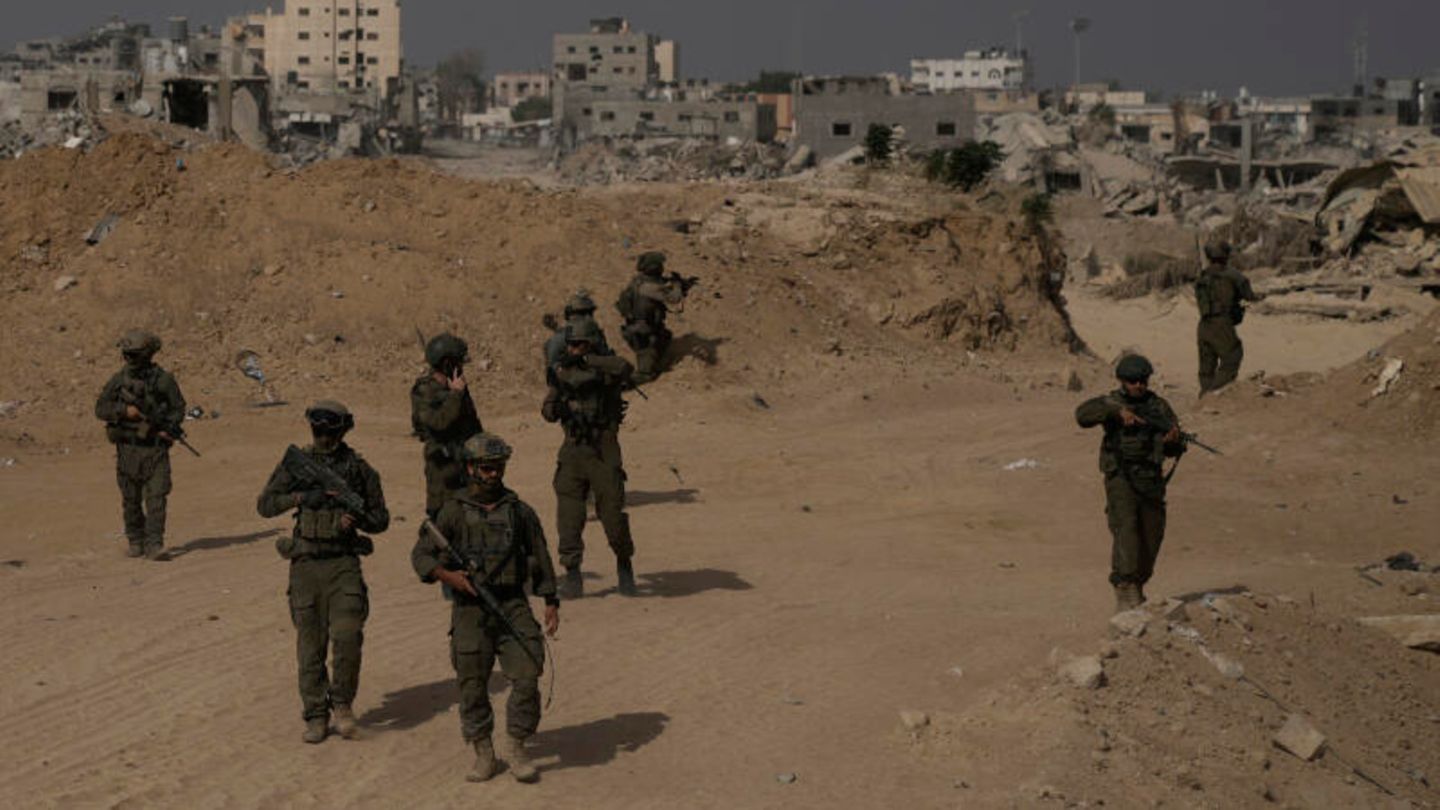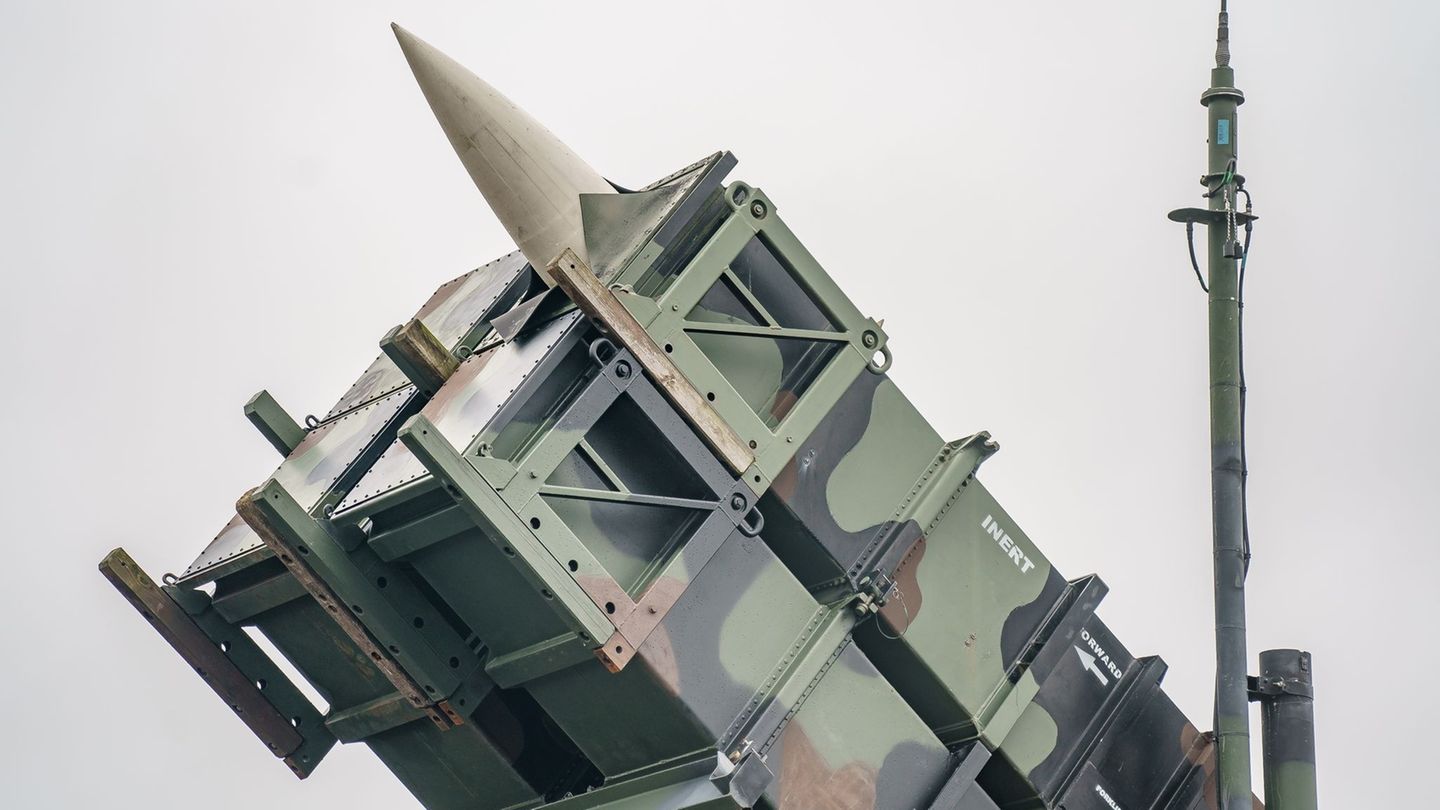Israel has announced that it will carry out heavy strikes in the Gaza Strip and on Hezbollah in Lebanon following rocket attacks by Hamas over the weekend.
After the heavy mutual shelling at the weekend, Israel is continuing its action against Hezbollah in Lebanon – and is also continuing the fight against Hamas in the Gaza Strip. The air force is currently carrying out “extensive attacks” in its northern neighbor, the Israeli army announced on its Telegram channel this morning. Details were not initially given. Before that, sirens sounded again in northern Israel. The pro-Iranian Shiite militia said it had attacked the area again. There were initially no reports of possible casualties or damage. Both sides had already exchanged heavy shelling the previous night and in the hours afterward.
According to Chief of Staff Herzi Halevi, Israel is planning further steps against Hezbollah in the coming days. Israel will allow its residents in the border areas in the north of the country to return to their homes. “And if Hezbollah has not understood this, then it will receive another blow and another blow – until the organization understands it,” said the army chief. Israel has other capabilities that it has not yet used.
Israel’s army chief announces further action against Hezbollah
The killing of Hezbollah commander Ibrahim Akil and other senior commanders in an Israeli air strike near Beirut on Friday “shaken” the organization, Halevi said in a speech. Israel’s message to Hezbollah and others in the region is: “We can reach all those who threaten Israel’s citizens.” Israel remains at its highest level of readiness in attack and defense, he said.
Israel’s Defense Minister Joav Galant said that Hezbollah had experienced “the worst week in its history.” They would continue to “use all means” to achieve Israel’s goals, he said, referring to the desired return of residents in the north of the country. Both the Shiite militia Hezbollah and Hamas belong to Iran’s so-called “axis of resistance” – an alliance against the common enemy Israel.
According to the Jerusalem Post, Israel’s Prime Minister Benjamin Netanyahu told the parliamentary Foreign and Defense Committee that Iran’s threat has two elements. These include the nuclear threat to Iran and simultaneous attacks from the north, south and east, Netanyahu said at the closed session in Jerusalem. The Iranian Revolutionary Guard (IRGC) has meanwhile arrested twelve people on suspicion of spying for the Israeli foreign intelligence service Mossad.
Arrests in Iran for alleged Israeli espionage
The IRGC said they had attempted to collect secret information in six provinces of the country and pass it on to the Mossad. No further details were provided. Those arrested could face the death penalty if convicted. In March, an alleged Mossad agent was executed in a similar case.
Meanwhile, the Israeli army continues to take action against Hamas in Gaza. The air force reportedly attacked an Islamist command center in the center of the sealed-off coastal strip in a building that used to house a school. Numerous measures were taken before the attack to reduce the danger to civilians. The information could not be independently verified.
Netanyahu: Half of Gaza hostages still alive
According to information from Netanyahu, about half of the 100 or so hostages held in the Gaza Strip since last year are still alive. According to media reports, Israel’s head of government said this at the meeting of the parliamentary committee for foreign and security policy. There was no official confirmation of this.
On October 7 last year, terrorists from Hamas and other extremist groups killed more than 1,200 people in Israel and took about 250 others hostage in the Gaza Strip. This was the trigger for the Gaza War.
During a ceasefire at the end of November, Hamas released 105 hostages. In return, Israel released 240 Palestinian prisoners from prisons. Since then, individual hostages have been freed by the Israeli military, and several were recovered dead. Indirect negotiations about a new ceasefire and the release of further hostages, in which the USA, Egypt and Qatar are acting as mediators, have so far been unsuccessful.
Reports: Plan for siege of northern Gaza under discussion
According to Israeli media reports, military representatives will present Netanyahu and Galant with several alternatives for the future distribution of humanitarian aid in the northern Gaza Strip in the coming days. Hamas should be prevented from controlling the civil administration and looting aid supplies, the Jerusalem Post reported. One of the proposals is a “siege” of northern Gaza, the Times of Israel reported.
A retired general was quoted as saying that residents in the northern part of the sealed-off coastal strip must be given a week to leave the area. The north of Gaza would then be declared a military zone to which no aid would reach. As long as Hamas retains control over the distribution of food and fuel, it will be able to fill its coffers and recruit new fighters.
Six dead hostages
Netanyahu apologizes and vows revenge – but the pressure is growing
Such an approach is also the only chance for an agreement to release the hostages, said a member of the parliamentary committee for foreign and security policy during the closed session with Netanyahu, according to the newspaper. This would put the Hamas leader in the Gaza Strip, Jihia al-Sinwar, under additional pressure to come to the negotiating table and make concessions, it was said.
Source: Stern
I have been working in the news industry for over 6 years, first as a reporter and now as an editor. I have covered politics extensively, and my work has appeared in major newspapers and online news outlets around the world. In addition to my writing, I also contribute regularly to 24 Hours World.




